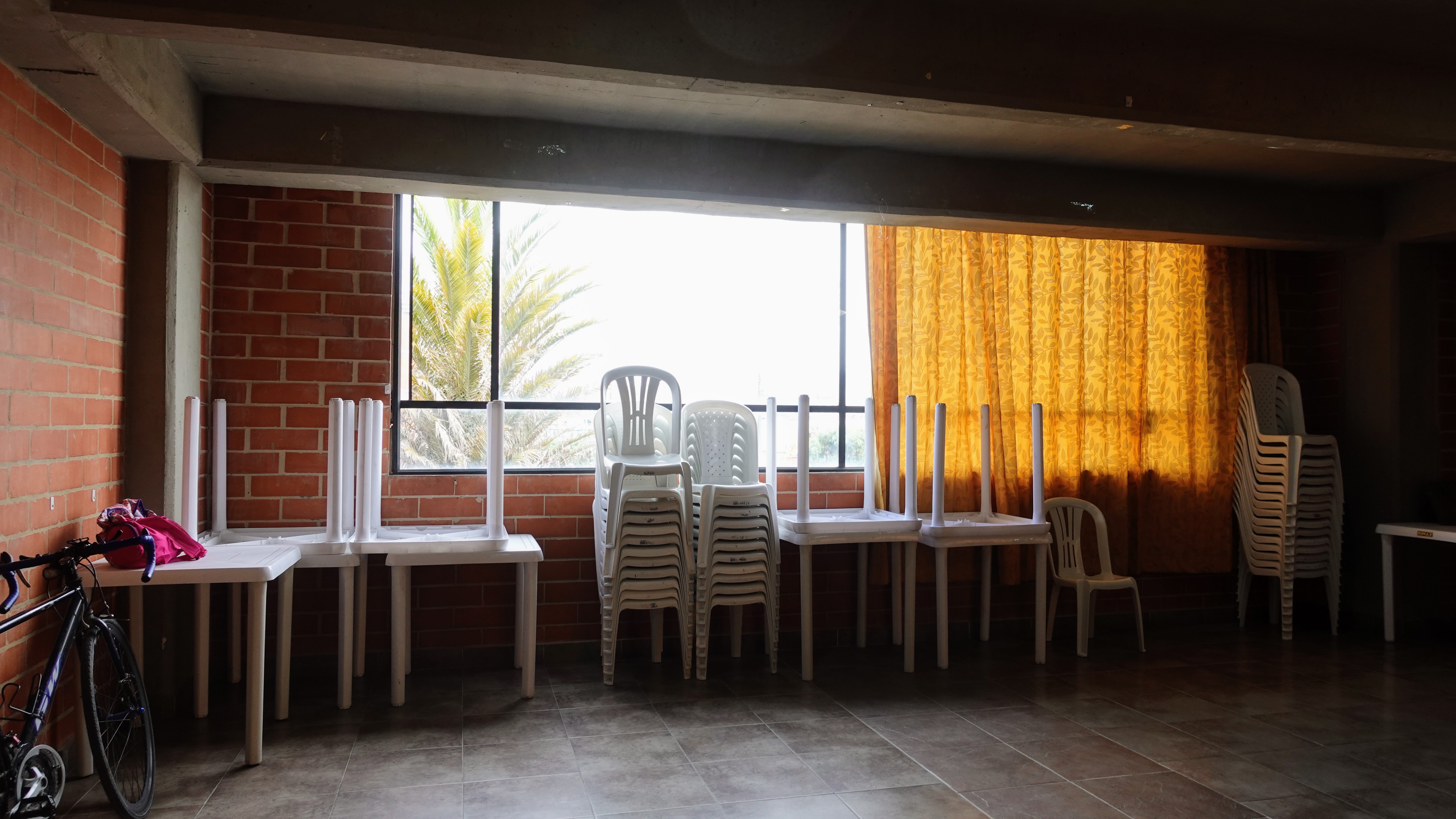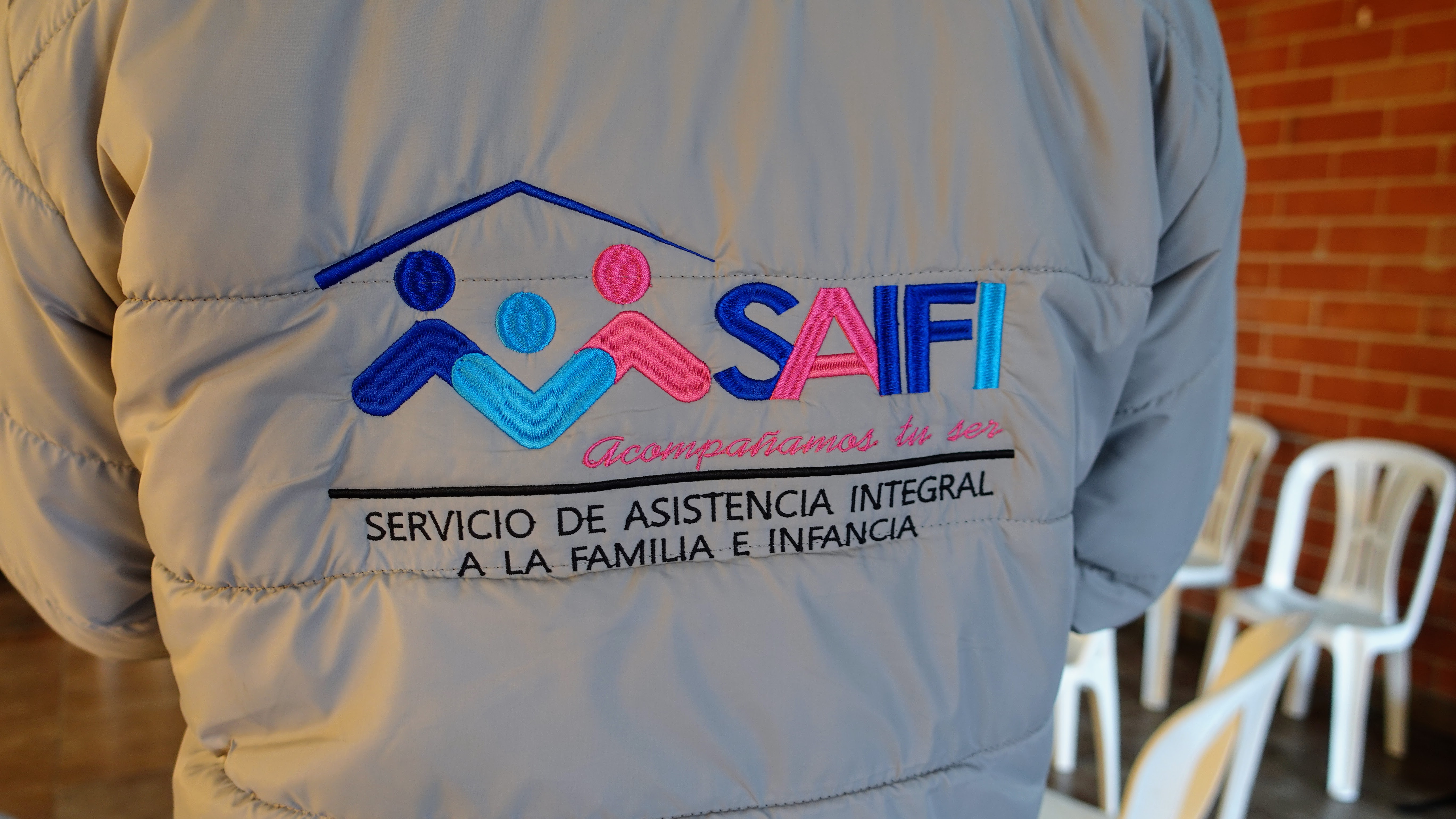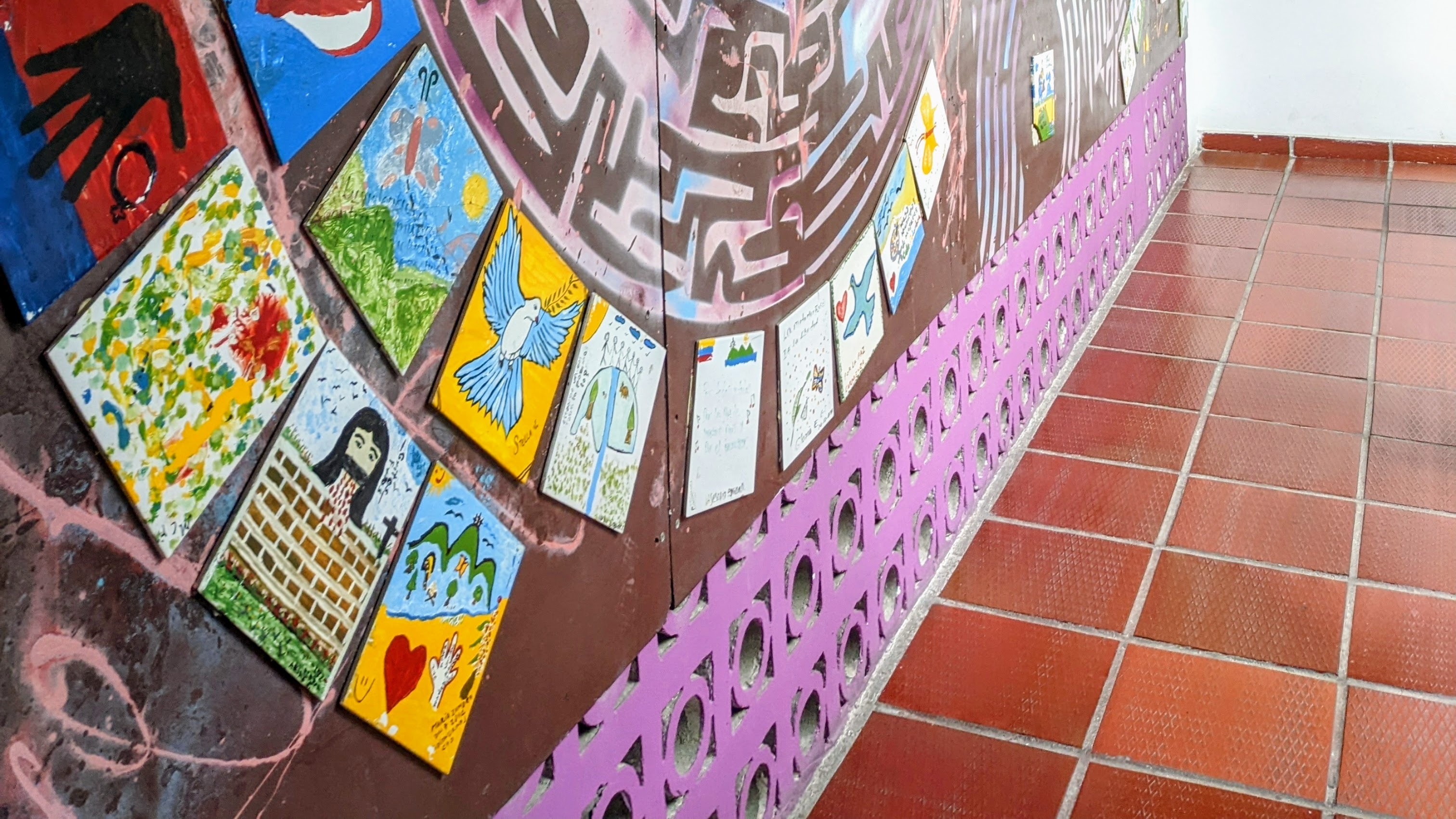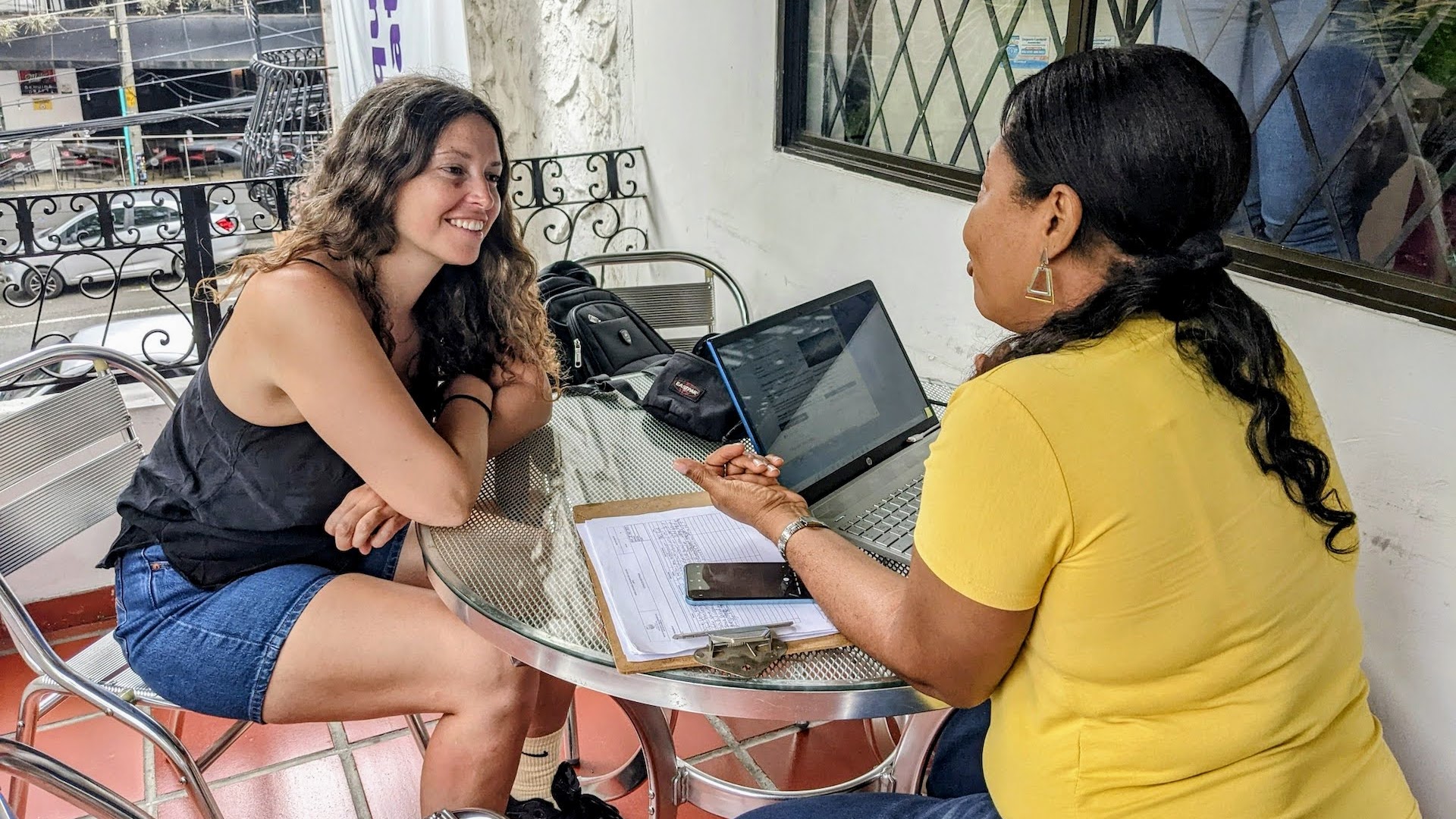Further context encounters
I took every opportunity to connect with organisers and advocates working to support the health and welfare of underserved groups during my travels.
This article represents my appreciation for the Colombian culture of oral sharing, cooperative effort and community service, all of which facilitated some extraordinary encounters
SAIFI
An afternoon spent with Edward Doglia and Dalia Ochoa, psychotherapists and psychosocial intervention facilitators for Servicio de Asistencia Integral a la Familia e Infancia
It is an unyielding commitment to the healing of their community that drives Edward Doglia and Dahlia Ochoa to cultivate such magic in this otherwise ordinary social space on the 3rd floor of an apartment building in Bosa, southwest Bogotá.

With the support of Servicio de Asistencia Integral a la Familia e Infancia (SAIFI), a Venezuelan founded psychosocial health focused foundation for families, Edward and Dahlia deliver 'Familias que Caminan' or 'Families that Walk’, a weekly program of safe relational healing and mental health intervention.
Since their arrival to Colombia in 2022 Edward and Dahlia have been working hard to make these psychoeducational services accessible to adults affected by emotional conflict in the city’s southern municipalities - their time and energy is invested totally voluntarily and provision is completely free for the community.
choosing to be part of this group marked the first time she felt she could openly share her story and truly feel heard
Being open, secular, inclusive - and thanks to the strong Colombian culture of oral sharing - their offering is well engaged with by a diverse community of people seeking support to express, regulate and manage their experience of the world - many of whom are at risk of scarcity, violence and the trauma associated with international, domestic and city specific displacement.

During my last days in Bogotá, Edward and Dahlia invited me to participate in an afternoon of warm storytelling, active listening and self / co regulation; it was a unique joy to sit in community, connect with and practice mind:body, self care and restorative work together. The magic cultivated in that space transcended beyond language and the catharsis, incalculable; it ripples out from the individual participants to their families and ultimately out into the wider community, transforming the relational experience of the entire population that is at risk.
Carolina Bocanega, a committed member of ‘Families that Walk’ here in Bosa, shared with me that choosing to be part of this group marked the first time she felt she could openly share her story and truly feel heard - a powerful testament to the value of SAIFI and it’s work here in Colombia.
I’d also like to acknowledge the work of Mahuampi, another organisation working to meet access to rights, employability and health care needs for Venezuelan migrants in Bogotá and to whom Edward and Dahlia are also connected to as volunteers.
Casa Matria
A conversation with Yadira Lugo at Casa Matria, a VAWG protection specialist support organisation in Cali
Housed in a beautiful, white washed building in the Juanambu neighbourhood of West Cali, I found an important site that hosts vital anti-VAWG interventions and provides access to fundamental protection services that support the women of the city.

Casa Matria offers empowerment, connection and onward referral to formal physical, mental and psychosocial health support. They advocate for recourse to public funds and essential social protections such as relocation away from violent spaces, access to statutory legal advice, adult education and opportunities for economic independence. Alongside their frontline service provision, Casa Matria are active agents for political, economic and social change in the city. Their work pushes for policy reform that will restore the rights of and protect the experience of a safe life for the most marginalised populations of women in Cali,
With all of their power, they resist systemic threats to a woman’s right to safety
Casa Matria’s Yadira Lugo tells me that the number of women they serve annually is in the thousands and that they have a separate residential property in an anonymised location elsewhere in the city so they can shelter women fleeing violent homes and neighbourhoods. She feels that violence is prevalent here, there is a cycle of scarcity, fear and institutional sexism that disables vulnerable women from finding freedom, breaking that cycle and supporting themselves independently.
It is clear that VAWG is deeply normalised and societally entrenched as acceptable, Casa Matria use all of their power to try and navigate stratified bureaucracy in this context and, as is true worldwide for many foundations designed to empower the disempowered, they have limited resources with which to resist oppressive systems of machismo that slow progress towards a woman’s right to safety.

The work of Casa Matria confronts the brutality of these ongoing gender based injustices that inevitably disproportionately affect the poorest women in the city - an extraordinary act of resistance I'm grateful to have been witness to.
Other organisations working to mitigate and protect against the VAWG prevalence in Cali are ‘Fundacion Sí Mujer’ and ‘Asociacion Lila Mujer’ who, for 15 years, have enabled a reclamation of power for women living with HIV.